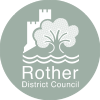Status: Past
We consulted from 16 August to 27 September 2021 on changes to the Council Tax Reduction Scheme that reduces council tax for some self-employed residents on very low incomes. Thank you to all those who responded, the results are being analysed and will be reported to Councillors.
Changes to our Council Tax Reduction Scheme
Rother District Council operates a scheme that reduces the cost of Council Tax to those on benefits and a very low income. The scheme was reviewed earlier in 2021. Cabinet proposed some changes that will mean more people can get money off their bills, and we are consulting on those changes.
The changes affect only those who are self-employed and:
- Lone parents or
- Carers for long-term sick or disabled family members or
- Disabled and in receipt of disability benefit themselves or
- Are also employed under PAYE employment (work some hours for an employer)
We suggest that it can be difficult for those who are carers and disabled to regularly work full-time hours due to other priorities for their time. Therefore, we will reduce the number of working hours used to calculate their income when applying the reduction. Currently, the reduction is calculated based on working 35 hours a week, and this will be reduced to 16 hours a week.
Some self-employed people are also working for an employer. Therefore, we will combine self-employed, and PAYE worked hours up to 35 hours, which is the same number of hours we would apply if they were working completely self-employed. This is in order not to penalise those that need to have a part-time job because their self-employment does not occupy them full-time.
The current rules state:
‘The minimum income floor affects those claimants who are currently self-employed. Financial support is given for a start-up period of one year, after which it is assumed that the claimant is achieving a minimum level of income when assessing CTR. This is based on 35 hours multiplied by the National Minimum Wage or their actual income taken from their profit and loss accounts if greater.’
Proposed added rules would be:
It is proposed to add new rules to give the Council the discretion to reduce the assumed hours worked from 35 hours a week for the following groups.
- For self-employed applicants who are lone parents, the income from self- employment will be calculated using the greater of either their actual income taken from their profit and loss accounts or 16 hours at the national living wage.
- For self–employed applicants in receipt of a disability benefit, the income from self-employment will be calculated using the greater of either their actual income taken from their profit and loss accounts or 16 hours at the national living wage.
- For self-employed applicants with caring responsibilities for a vulnerable person (excluding care for dependent children) the council will have the discretion to reduce the assumed hours worked from 35 on an individual basis and dependant on the level of care and support being provided.
- For self-employed applicants who also undertake PAYE employment the Council will have discretion to use the number of self-employed hours at the national living wage that, when combined with the hours worked during the PAYE employment, does not exceed 35 hours per week.
The effects of these changes are:
- Some more self-employed people will be eligible for a reduction in their council tax.
- Some self-employed applicants might get more reduction in the council tax bill.
- There will be a small reduction in the total amount of council tax that goes to the precepting authorities who are funded by council tax. We are consulting with those authorities separately because there will get less money and there will be an impact on their budgets. Also, Rother District Council will get less money from Council Tax to fund its services.
What will NOT change are the other rules and regulations for the scheme:
- Applicants will have to be on a low income and have a limited amount of savings.
- The sliding scale of reduced Council Tax will reduces the bill up to 80% depending on income. Applicants could be eligible for a reduction of 20%, 40%, 60% or 80%. Everyone pays at least 20%.
- You can read about the other regulations for the Council Tax Reduction Scheme here.
About Council Tax:
Council Tax is a local tax that funds local public services.
In Rother, those public services are the respective town and parish councils, Rother District Council, East Sussex County Council, Sussex Police and East Sussex Fire and Rescue Service. They are called precepting authorities. They have the right to raise a precept to get part of the Council Tax.
Rother District Council sends out bills and collects the Council Tax on behalf of all the precepting authorities. Then it sends to the precepting authorities the money that they are owed.
How to Take Part in this Consultation
This consultation closed on Monday 27th September 2021

